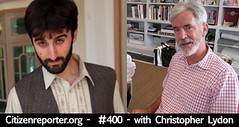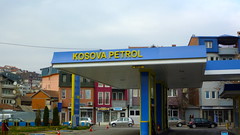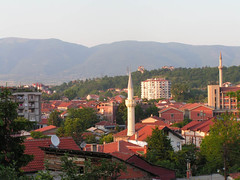
Hanna Braun. In early 2006 this name was recommended to me by an enthusiastic listener who said something to the effect of “you should really interview her.” I did some reading and learned a bit about who Hanna Braun was, an stubborn old lady who had grown up in Berlin during the rise of Hitler, then moved to Palestine when it was under British control, and then lived the creation of the state of Israel. However the real story of Hanna Braun is one of resistance and speaking out – as she witnessed injustice run rampant in this newly created state. Beyond injustice, Hanna explains what few people are old enough to recall – this was not the original plan, the dream of a secular inclusive state was co-opted and would never be realized.
I had the great privilege to speak with Hanna for 2 fantastic hours for this podcast all those years ago (including during the most recent Israeli military incursion into Lebanon). We spoke about her life and the lessons learned from all that she lived through. We spoke about the beautiful moments and of course – her life’s work – exposing the injustices and the suffering in Palestine that deserve the world’s attention. Hanna was dedicated not only to speaking about it, but taking action herself; organizing projects and participating in demonstrations, conferences, meetings and more. She was an inspiring figure who taught me more about history than any school book in high school ever did.
Hanna died just over a week ago at the age of 84. I hadn’t spoken to her in a few years, but I have thought of her often whenever someone asks about my most favorite interview. I was very much looking forward to having her back on the program and hear more from her all these years later. Instead her voice as well as her words will have to suffice. Her memoir, “Weeds Don’t Perish – Memoirs of a Defiant Old Woman Author” was published just 2 months ago. I intend to read it, pass it on to my loved ones, continue to pass on the message, and carry on speaking out, just as Hanna did.
 He was podcasting before there was podcasting. Looking to the online conversations and connections between old and new media long before any media company understood what was going on. He’s a global citizen who has a talent for finding inspiring voices and teaching us about our world. His is a voice I hear in my head whenever I turn on a microphone or ask a question. Who better to talk about the past, present, and future of this thing we do on this website and beyond, than Christopher Lydon. He was there making podcasts long before anyone else back in 2002, when I starting recording my own program in 2004, his
He was podcasting before there was podcasting. Looking to the online conversations and connections between old and new media long before any media company understood what was going on. He’s a global citizen who has a talent for finding inspiring voices and teaching us about our world. His is a voice I hear in my head whenever I turn on a microphone or ask a question. Who better to talk about the past, present, and future of this thing we do on this website and beyond, than Christopher Lydon. He was there making podcasts long before anyone else back in 2002, when I starting recording my own program in 2004, his  Madge Weinstein is an internet celebrity, a culinary pioneer, and an extremely irritable elderly lesbian. Beyond all that, she is an inspiration to several generations of children around the world. After surviving many tragedies, including 3 Bush presidential terms and the current socio-political disaster that has gripped the United States, this podcasting diva has moved her life to Paris where she is sharing her talents with the people of France who already hate her.
Madge Weinstein is an internet celebrity, a culinary pioneer, and an extremely irritable elderly lesbian. Beyond all that, she is an inspiration to several generations of children around the world. After surviving many tragedies, including 3 Bush presidential terms and the current socio-political disaster that has gripped the United States, this podcasting diva has moved her life to Paris where she is sharing her talents with the people of France who already hate her. The border crossing looks new and partly unfinished. In different corners there are exposed wires and lamp fixtures that will probably soon find their permanent place. It is the middle of the afternoon on a quite holiday afternoon, the border guard in his nice new blue jacket and pants saunters onto the bus looking at each person’s passport. As he approaches a few other western passengers seated in from of me, I notice the nice blue patch on his arm featuring the yellow outline of the country, “Its your first time in Kosovo?” he asks each of us, “Just visiting?”
The border crossing looks new and partly unfinished. In different corners there are exposed wires and lamp fixtures that will probably soon find their permanent place. It is the middle of the afternoon on a quite holiday afternoon, the border guard in his nice new blue jacket and pants saunters onto the bus looking at each person’s passport. As he approaches a few other western passengers seated in from of me, I notice the nice blue patch on his arm featuring the yellow outline of the country, “Its your first time in Kosovo?” he asks each of us, “Just visiting?”
